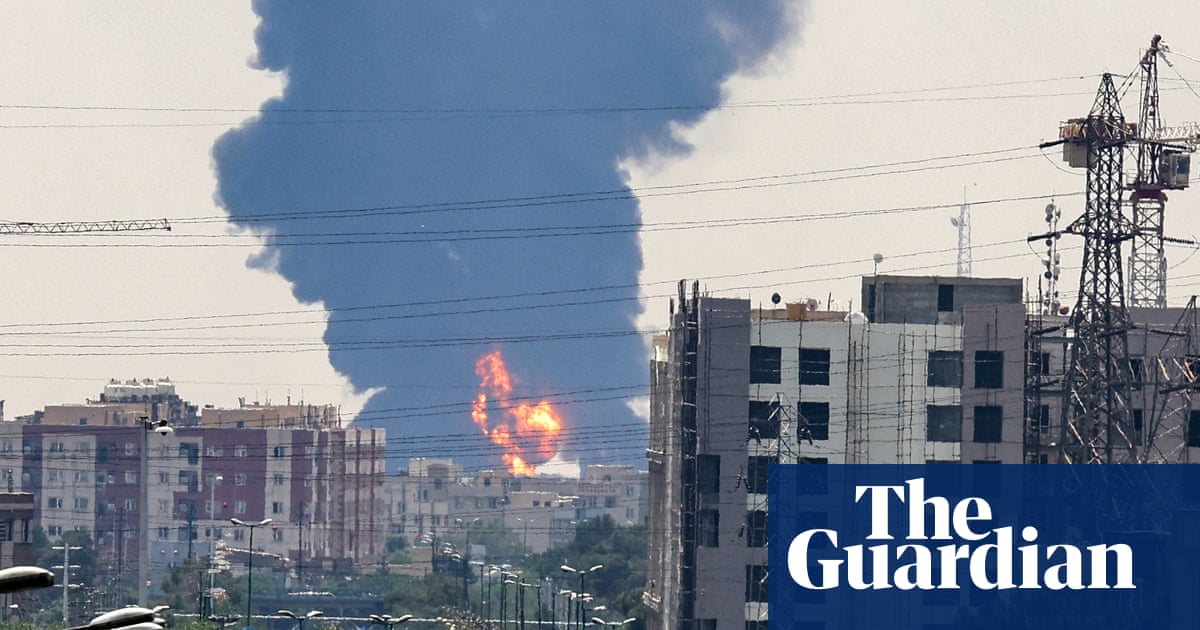The International Campaign to Abolish Nuclear Weapons (Ican) has described the escalating conflict betweenIsraeland Iran as a “terrifying reminder of how close the world remains to nuclear disaster”, arguing Australia should condemn illegal military attacks and ratify the global treaty banning nuclear weapons.
Israeli strikes onIranian nuclear facilitiesviolate international law, Ican has alleged, and could cause radioactive contamination with long-term consequences for human health and the environment.
“The prospect of radiation release, the erosion of non-proliferation norms, and the emboldening of nuclear-armed states to act without accountability – this is the deadly logic ofnuclear deterrenceplaying out in real time,” said Gem Romuld, the Australian director of Ican, a Nobel prize-winning anti-nuclear group.
“We need urgent de-escalation and a return to diplomacy. Australia should press its allies, particularly the United States, to act responsibly and stop enabling this cycle of violence.”
Israel, the only nuclear-armed state in the Middle East, is widely believed to be modernising its arsenal. It remains outside the nuclear non-proliferation treaty (NPT), but is estimated to have 90 nuclear warheads. Israel has never officially acknowledged that it possesses nuclear weapons.
Israel has maintained its strikes on Iranian nuclear facilities are lawful and necessary to preventIranacquiring nuclear weapons and using them in the future. The attacks were “pre-emptive and precise strikes” against military targets, the Israel Defense Forces spokesperson Brig Effie Defrin said.
Iran, which had previously proposed a nuclear weapons-free zone in the Middle East, is a state party to the NPT but has now threatened to withdraw. The Iranian foreign minister, Abbas Araghchi, insisted Iran’s nuclear programme was peaceful and that it sought an end to hostilities: “Iran is ready to consider diplomacy once again – once the aggression is stopped and the aggressor is held accountable for the crimes committed.”
Globally, the nuclear threat is growing.
The decades-long trend of the number of dismantled warheads outstripping the deployment of new warheads – resulting in an overall year-on-year decrease in the global inventory of nuclear weapons – appears set to end: the pace of dismantlement is slowing, while the deployment of new nuclear weapons is accelerating.
Figures released this weekby the Stockholm International Peace Research Institute (SIPRI) show that of the 12,241 nuclear warheads globally, 9,614 remain in military stockpiles, and 3,912 are deployed on missiles and aircraft, with 2,100 kept on high operational alert.
“The era of reductions in the number of nuclear weapons in the world, which had lasted since the end of the cold war, is coming to an end,” said Hans M Kristensen, an associate senior fellow with SIPRI’s Weapons of Mass Destruction Programme.
“Instead, we see a clear trend of growing nuclear arsenals, sharpened nuclear rhetoric and the abandonment of arms control agreements.”
Since before winning office in 2022,Labor has committed to ratifying the UN Treaty on the Prohibition of Nuclear Weapons(TPNW) in government, but it has not yet done so.
The government has argued it is “considering the TPNW systematicallyand methodically as part of our ambitious agenda to advance nuclear non-proliferation and disarmament”.
Globally, 94 countries have signed the ban treaty, and73 have ratified it. No nuclear weapons states are party to the treaty.
